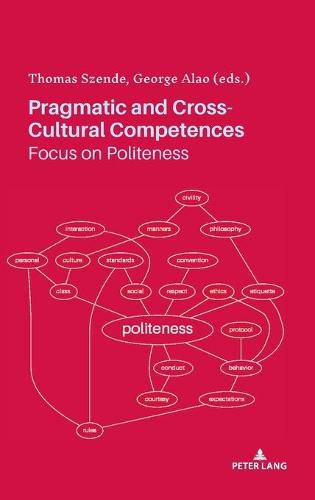Readings Newsletter
Become a Readings Member to make your shopping experience even easier.
Sign in or sign up for free!
You’re not far away from qualifying for FREE standard shipping within Australia
You’ve qualified for FREE standard shipping within Australia
The cart is loading…






This title is printed to order. This book may have been self-published. If so, we cannot guarantee the quality of the content. In the main most books will have gone through the editing process however some may not. We therefore suggest that you be aware of this before ordering this book. If in doubt check either the author or publisher’s details as we are unable to accept any returns unless they are faulty. Please contact us if you have any questions.
The L2 speaker is able to function in the target culture only when s/he is able to understand, anticipate and produce the choices that the said society makes. Being polite therefore means: knowing how to draw on the conventions of a society, taking into account the expectations of an interlocutor regarding social relations at any given point, and is based on the appropriate language register to the communication situation; being able to balance standard and non-standard features and to adjust one’s speech by moving it towards more or less familiarity, or formality. The learner therefore needs to be aware of the pragmatic flexibility of speakers - native and experts - who move from one register to another and juggle between respect and caution, first degree meaning and irony, exuberance and excess, with difference in levels, nature and degrees of politeness.
This volume contains contributions whose theoretical reflections, field work experiences and authentic data from diverse African, Asian and European languages, literatures and cultures as well as a variety of corpora shed new light on politeness as a central phenomenon in pragmatics, and on what is at stake when teaching or learning the subject. It also opens up a conceptual dialogue with a whole range of domains likely to enrich the debate: sociolinguistics, literature, translation studies, semiotics, cultural anthropology, social psychology, etc.
$9.00 standard shipping within Australia
FREE standard shipping within Australia for orders over $100.00
Express & International shipping calculated at checkout
This title is printed to order. This book may have been self-published. If so, we cannot guarantee the quality of the content. In the main most books will have gone through the editing process however some may not. We therefore suggest that you be aware of this before ordering this book. If in doubt check either the author or publisher’s details as we are unable to accept any returns unless they are faulty. Please contact us if you have any questions.
The L2 speaker is able to function in the target culture only when s/he is able to understand, anticipate and produce the choices that the said society makes. Being polite therefore means: knowing how to draw on the conventions of a society, taking into account the expectations of an interlocutor regarding social relations at any given point, and is based on the appropriate language register to the communication situation; being able to balance standard and non-standard features and to adjust one’s speech by moving it towards more or less familiarity, or formality. The learner therefore needs to be aware of the pragmatic flexibility of speakers - native and experts - who move from one register to another and juggle between respect and caution, first degree meaning and irony, exuberance and excess, with difference in levels, nature and degrees of politeness.
This volume contains contributions whose theoretical reflections, field work experiences and authentic data from diverse African, Asian and European languages, literatures and cultures as well as a variety of corpora shed new light on politeness as a central phenomenon in pragmatics, and on what is at stake when teaching or learning the subject. It also opens up a conceptual dialogue with a whole range of domains likely to enrich the debate: sociolinguistics, literature, translation studies, semiotics, cultural anthropology, social psychology, etc.